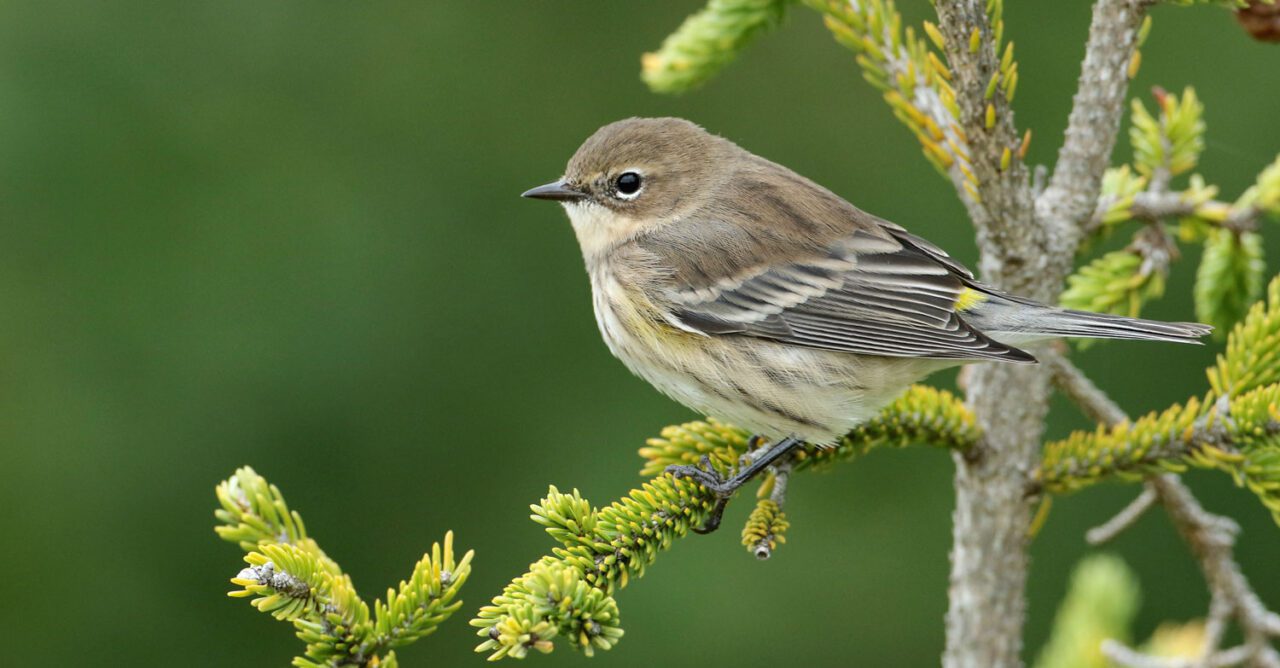

A good field guide is one of the most important tools to help identify birds. Traditionally, field guides took the form of books, often quite big books, that for field use could be heavy or vulnerable to wetting on rainy days. Nowadays there are also some great smartphone apps as well, making bird ID fit into the palm of your hand. Many people rely on both books and apps to identify birds; below are some of our favorite guides for North America.
With many great field guides out there, the “best” bird identification book is often a matter of opinion. To find your favorite, start by browsing field guides at a library or bookstore. Look up four or five familiar birds: which guide portrays these birds closest to the way you see them? Is the book comfortable to use? Are the birds easy to find?
Look for a field guide with drawings rather than photographs. Artists portray birds in similar poses, using their experience and knowledge to make it easier for you to key in on the important field marks. With photographs, lighting conditions and differences in postures can obscure important features or highlight unimportant ones.
Size is also a factor: if your book is too large, you won’t want to carry it in the field, but if it’s too small, it may not include all the likely birds in your area. Start with a guide that shows all the birds of North America or at least all the birds of the East or the West. You might find that a state-level guides (or other regional guide) is helpful and handy for most of the birds you run across—but keep a more thorough guide to turn to for those unusual sightings you’re sure to find eventually.
These are some of the guides we recommend:
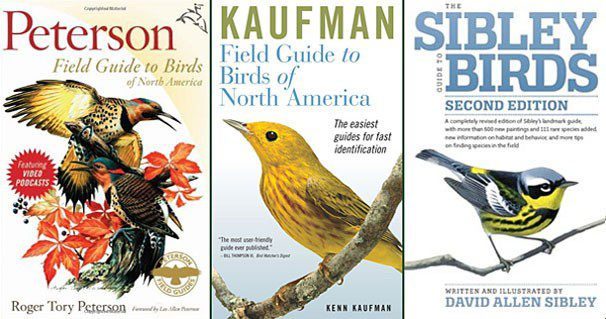
This series of slim, pocket-sized guides present information and photos from our All About Birds website for about 200 species in each of seven North American regions: Northeast, Southeast, Midwest, Northwest, Southwest, California, and Texas & Oklahoma. They include four ID photos per species, including male, female, breeding, and nonbreeding plumages, updated range maps, and a visual index to quickly get you to the right page. There’s also an in-depth front section on how get started as a new birdwatcher and how to attract birds to your yard.
Folding guides break down bird identification into regional areas, placing illustrations and a minimal amount of text onto a foldable, laminated sheet. The number of featured species is limited, but these small, sturdy guides are easy to carry and stand up to the elements.
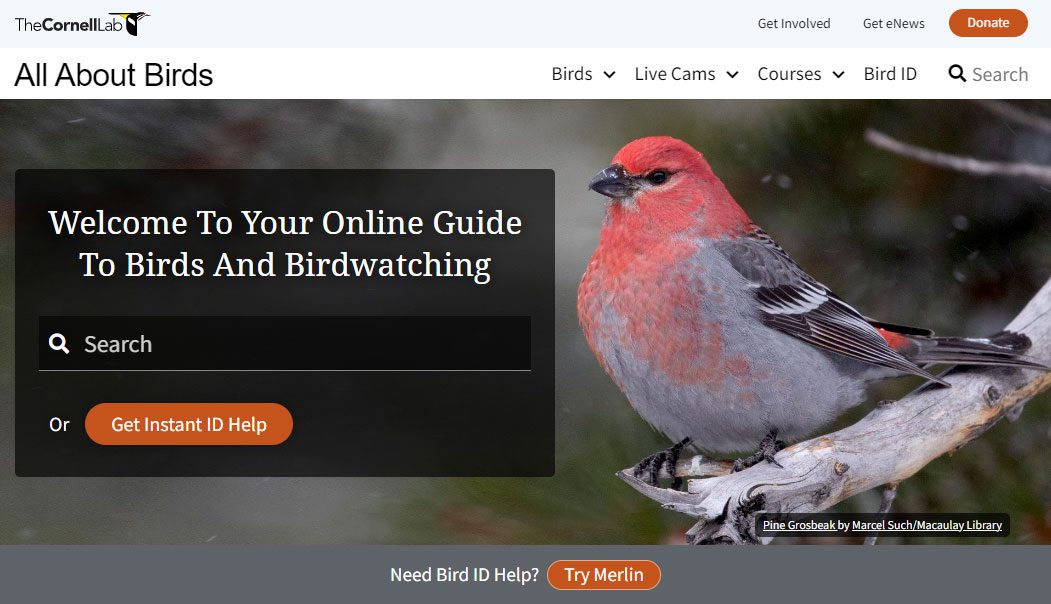
Our All About Birds online bird guide is a great resource with lots of information on more than 630 species of birds from the U.S. and Canada, including photos, sounds, and videos. You can browse birds by family and shape. Each account has a section where the featured bird is compared to similar species, which helps in identification when species look alike.
For comprehensive scientific information on all 10,900+ birds on Earth, a subscription to Birds of the World is more than worth the modest expense.
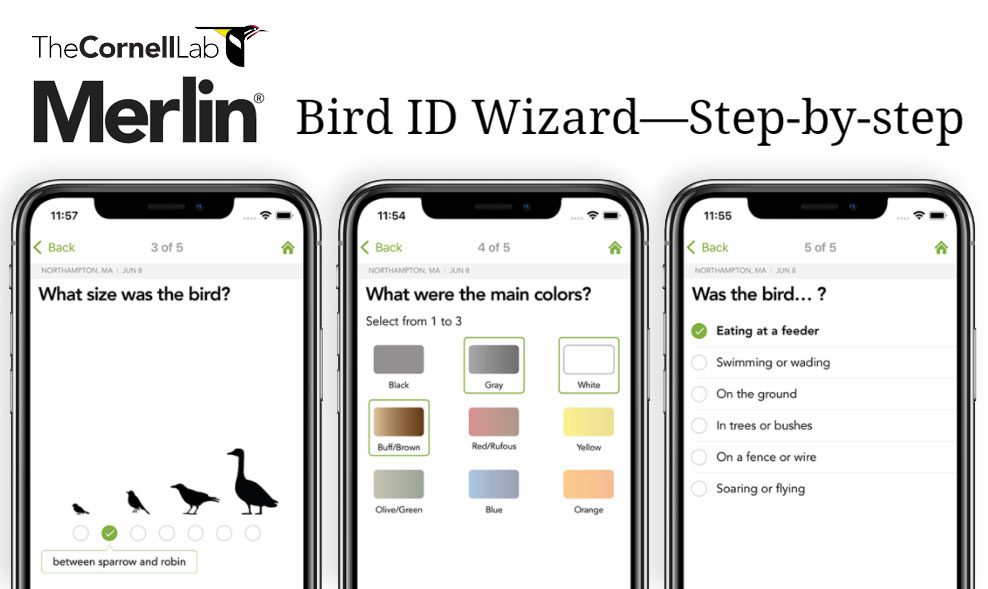
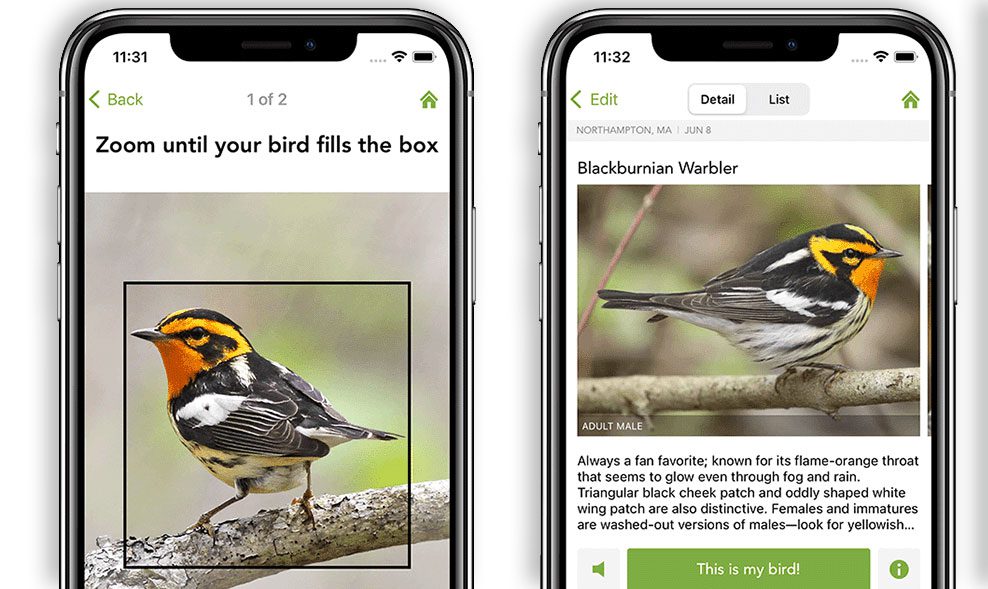
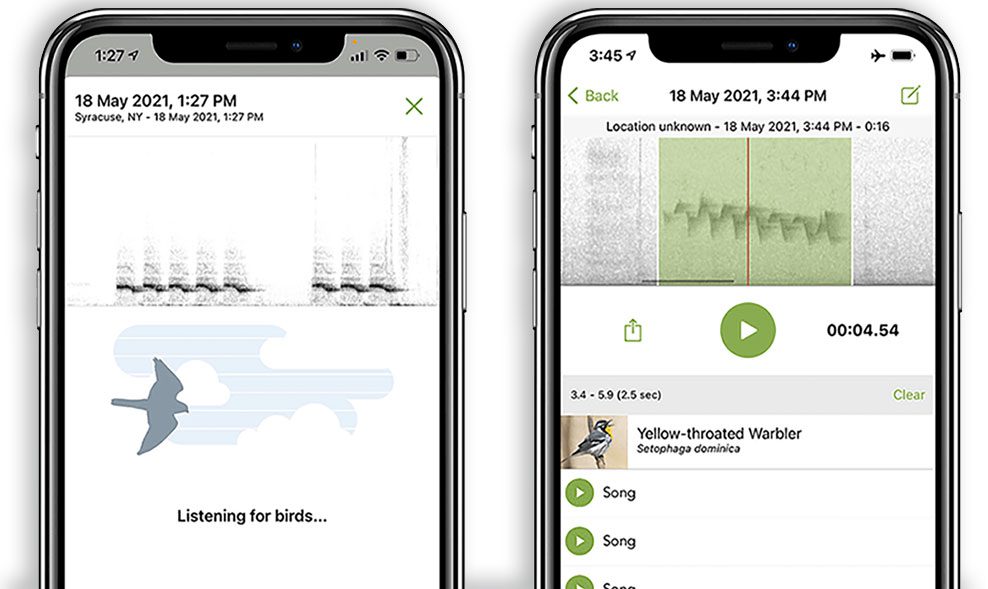
Apps are a great resource for bird identification that you can carry in your pocket. Many people like to have a good bird identification book at home, and use an app when they are birdwatching outdoors. Many apps also have bird songs and calls in addition to drawings and photos. Here are a few apps that we like:
Available for everyone,
funded by donors like you